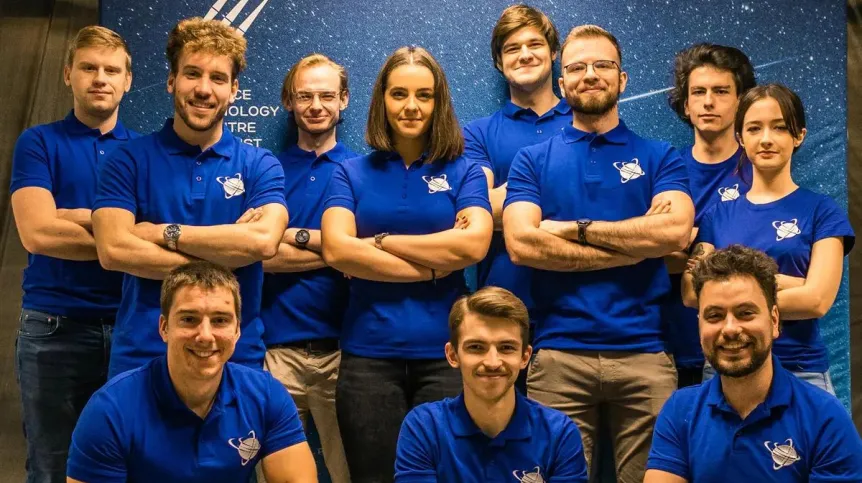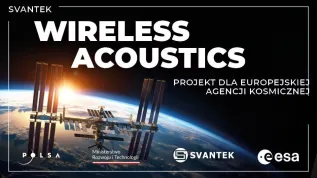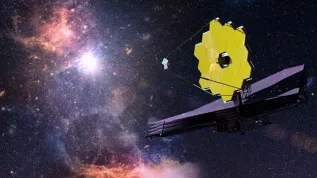
Orbital Space, a company operating in the United Arab Emirates, will enable students of the AGH University of Science and Technology in Kraków to develop and test the Lunaris device. It is designed to study the interaction of selected materials and coatings with lunar dust - regolith. The invention is scheduled to fly into space in 2025.
The university announced that it had concluded a cooperation agreement with Orbital Space.
The contract is an outcome of the AGH Lunar Technologies’ success at the 'Experiment on the Moon: Lunar Payload Mission' competition organised in May 2023 by Orbital Space.
The Lunaris project defeated over 400 projects from all over the world. The main prize is the opportunity to send (in 2025) a device to the Moon. The flight will be provided by Orbital Space.
'This will be the first such mission with a payload constructed by a Polish team and one of the first collaborations between Poland and the UAE in the space sector,’ the AGH UST reports.
The contract will also make it possible to improve the project. The cooperation will be coordinated by the AGH UST Space Technology Centre.
'We are very committed to supporting all such student initiatives. They are vital not only from the educational point of view, but also in terms of the participation of Polish engineers and scientists in the space conquest,’ says Professor Tadeusz Uhl, Director of the Space Technology Centre.
Dr. Bassam Alfeeli, General Manager of Orbital Space, adds that mentoring and support will be provided to young scientists. 'We will support the Polish student team in the fulfilment of their dreams (...)The mission of Orbital Space is to make space accessible to all, especially students,' he says.
The planned cooperation between the AGH University and Orbital Space also includes organising workshops, webinars, conferences and competitions to raise social awareness on the topic of space exploration.
The Lunaris device, which will analyse the interactions of selected materials and coatings with regolith, i.e. lunar dust, loose lunar rock, is under construction. Students have already developed the electronics and software of the device.
The finished payload has to meet certain requirements, including being 10×10×10 cm and weighing up to 200 g. The optical measurement method will be used to understand the interactions occurring between regolith and various materials. Regolith is characterised by high dusting potential, sharp edges, and electrostatically charged particles. These and other properties of the lunar dust cause a great deal of difficulty in selecting the right material.
According to the university, Lunaris will be among the first 3-D printed lunar payloads, which will enable obtaining geometry that would be otherwise difficult to achieve. The device will be made of a material designed to withstand extreme conditions in space.
The name of the project, Lunaris, was created by combining Latin word luna (meaning the Moon) and the title of Stanisław Lem's novel Solaris.
The research on the interaction of materials with regolith are vital for the future of Moon exploration. The results of the Lunaris project may be applied in the construction of tools, spacesuits, cables and connectors used in lunar landers and rovers that will be resistant to contact with the Moon's surface. (PAP)
PAP - Science in Poland, Beata Kołodziej
bko/ bar/ kap/
tr. RL













